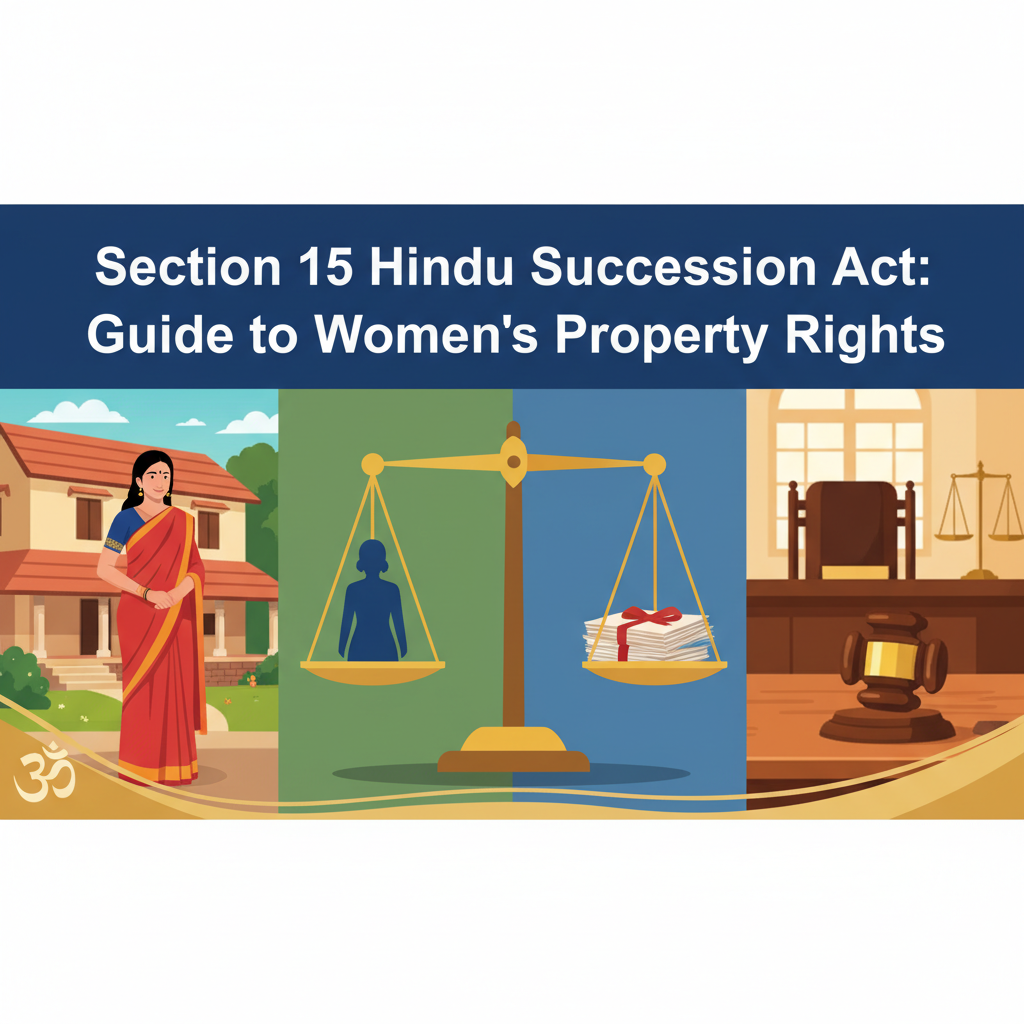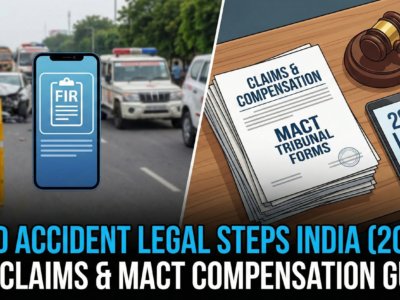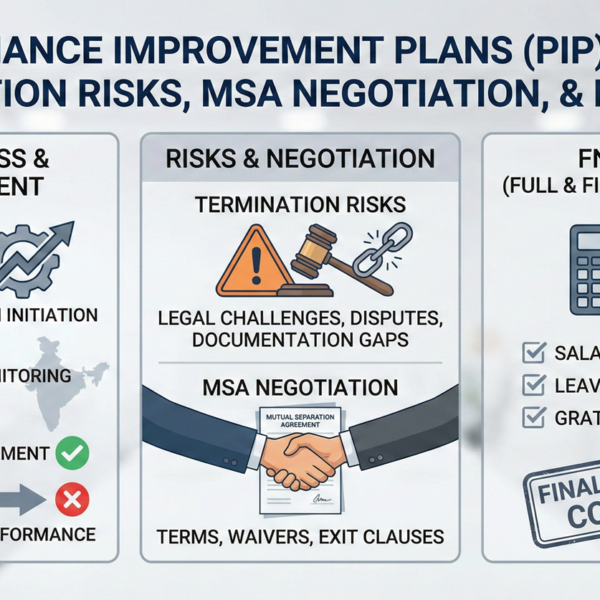“My father sold our ancestral property and gave the money to my brother, saying I have no right to it because I am married.” This is a common and painful situation many daughters in India face, but it is legally wrong.
The law is firmly on your side. Since the Hindu Succession (Amendment) Act, 2005, a daughter has an equal right by birth in ancestral property, just like a son. You are a coparcener, not a dependant. This guide will walk you through your exact legal rights, the strategic steps to claim your rightful share, and how to challenge any sale made without your consent.
eVaakil.com
The Definitive Legal Guide
Daughter's Rights in Father's Ancestral Property
"My father sold our ancestral property and gave the money to my brother, saying I have no right to it because I am married." This is a common and painful situation many daughters in India face, but it is legally wrong. The law is firmly on your side. Since the Hindu Succession (Amendment) Act, 2005, a daughter has an equal right by birth in ancestral property, just like a son. You are a coparcener, not a dependant. This guide will walk you through your exact legal rights, the strategic steps to claim your rightful share, and how to challenge any sale made without your consent.
Your Right is Not a Gift, It's Your Birthright
The Hindu Succession (Amendment) Act, 2005, fundamentally changed the law. It states that a daughter of a coparcener shall by birth become a coparcener in her own right in the same manner as the son. This means your claim is not dependent on anyone's permission—not your father's, not your brother's.
The Core Legal Truth
You have an equal share as your brother in ancestral property. Any sale of this property by your father without your consent is illegal and can be challenged. The money from the sale retains its 'ancestral' character, and you have a right to your share of those funds.
The 2020 Supreme Court Clarity: Your Rights Are Unconditional
A major point of confusion was whether a daughter's father had to be alive on September 9, 2005 (the date the amendment came into force) for her to claim her rights. The Supreme Court of India settled this issue definitively in the landmark case of Vineeta Sharma vs. Rakesh Sharma (2020).
Key Takeaway from the Supreme Court Ruling
The court declared that a daughter’s right as a coparcener is by birth. It exists from the moment she is born. Therefore, it does not matter whether her father was alive or not on the date of the 2005 amendment. If you were born into a family with ancestral property, you are a coparcener, period.
What Exactly Makes a Property 'Ancestral'?
The term "ancestral" has a strict legal definition. It's not just any property owned by your ancestors. For a property to be legally classified as ancestral, it must have been inherited through an unbroken chain of three generations of male lineage (your father, his father, and his father's father).
The Four-Generation Rule
Great-Grandfather
(Original Owner)
Grandfather
(Inherited)
Father
(Inherited)
You (Daughter)
(Coparcener by birth)
If the property was partitioned at any stage, it loses its ancestral character. Any share your father received in such a partition becomes his self-acquired property.
Ancestral vs. Self-Acquired Property: The Critical Difference
Your rights depend entirely on the nature of the property. The law treats property inherited from ancestors very differently from property your father bought himself. Understanding this is non-negotiable.
Ancestral Property
Property inherited from your paternal great-grandfather, which has remained undivided through four generations.
- ✔Your Right: Equal share by birth. You are a coparcener.
- ✔Father's Control: He is only a manager (Karta), not the absolute owner.
- ✖Can he sell without you? No, your consent is mandatory.
- ✖Can he disinherit you via a Will? Absolutely not.
Self-Acquired Property
Property your father bought with his own money, or received as his specific share in a family partition.
- ✖Your Right: You have no birthright. You only have a hope of inheriting it.
- ✔Father's Control: He has absolute and complete ownership.
- ✔Can he sell without you? Yes, he can sell, gift, or dispose of it as he wishes.
- ✔Can he disinherit you via a Will? Yes, he can will it to anyone he chooses.
The Source of Funds Doctrine: Is It Truly "Self-Acquired"?
Sometimes, a property is purchased by your father and is in his name, but it was bought using money generated from selling another ancestral property. In such cases, the law sees through this. The newly purchased property does not become "self-acquired."
Tracing the Ancestral Trail
🏡
Original Ancestral Property
💰
Sold & Funds Generated
(Joint Family Funds)
🏢
New Property Purchased
(Legally considered Ancestral)
This property acquires the character of ancestral property because it was bought with the "joint family nucleus." You have the same coparcenary rights in this new asset.
Your Toolkit of Rights as a Coparcener
Being a coparcener gives you more than just a share; it gives you a set of powerful legal rights to protect that share.
Right to Partition
You can demand a physical division of the property to get your specific share separated and registered in your name at any time.
Right to Challenge Alienation
If your father or brother sells the property without your consent, you have the right to challenge and potentially void the sale in court.
Right to an Account
You can legally demand a full accounting of all income and expenditure related to the joint family property from the 'Karta' (manager, usually the father).
Who is the 'Karta' and What Are Their Limits?
In a Hindu Undivided Family (HUF), the 'Karta' is traditionally the senior-most male member (often your father) responsible for managing the ancestral property. However, the Karta is a manager, not an absolute owner. Their power has significant legal limitations.
Powers of the Karta
- Manage the day-to-day affairs of the property.
- Represent the family in legal and financial matters.
- Receive income from the property on behalf of the family.
- Spend family funds for the maintenance and welfare of the members.
Limitations on the Karta
- Cannot sell or gift ancestral property at will.
- Cannot deny a coparcener (like you) their rightful share.
- Cannot use family funds for personal benefit unrelated to the family's welfare.
- Is accountable to all coparceners for the management of the property.
The Karta's role is one of trust and responsibility, not of dictatorship. Any action that harms the interests of the coparceners can be legally challenged.
The Power of a Will (Vasiyat) & Its Limits
A Will is a powerful legal tool, but it only governs what a person owns absolutely. A common misconception is that a father can use a Will to disinherit a daughter from her share in ancestral property. This is legally impossible.
A Simple Rule
"You cannot give away what you do not fully own."
In the case of ancestral property, your father is not the sole owner; he is a co-owner along with you and other coparceners. Therefore, his Will can only ever apply to his own self-acquired properties. Any clause in a Will that attempts to give your share of ancestral property to someone else is legally void and unenforceable.
Navigating the Emotional Battlefield: Law vs. Tradition
Asserting your property rights often involves difficult conversations with loved ones. It's common to face emotional arguments designed to make you feel guilty or selfish. Recognizing these tactics is the first step to responding with clarity and confidence.
🗣️
The Myth
"You're breaking the family for money. We've always done it this way; the property stays with the sons."
⚖️
The Legal Reality
"My right to this property is not a personal choice; it's a legal entitlement granted by birth, equal to my brother's. The law changed to ensure fairness. I am seeking what is legally mine, not trying to cause division."
Challenging an Illegal Sale to a Third Party
A common fear is that the property has already been sold to an outsider. Your consent as a coparcener is essential for a valid sale of ancestral property, except under very specific circumstances like a legal necessity for the family. A sale made without your consent is illegal and can be challenged.
Your Recourse Against an Unlawful Sale
- File for Setting Aside the Sale: You can file a suit asking the court to declare the sale deed null and void because it was executed without the consent of all coparceners.
- Burden of Proof is on the Buyer: The law often places the responsibility on the third-party buyer to prove they did due diligence and that the sale was for a 'legal necessity' of the family.
- Time is of the Essence: There are limitation periods for challenging a sale. It is crucial to act as soon as you become aware of the transaction. Consult a lawyer immediately.
What is a "Legal Necessity"? The Only Exception for a Sale
The only situation where a Karta (manager) can sell ancestral property without the consent of all coparceners is for a "legal necessity" or for the "benefit of the estate." These are very specific, emergency situations and are not a loophole for personal gain. The burden of proving this necessity falls on the person who bought the property.
What May Qualify as Legal Necessity:
(For the benefit of the whole family)
- Payment of government taxes or debts owed by the family.
- Maintenance and food for all family members.
- Urgent medical expenses for a family member.
- Necessary repairs to the ancestral property.
- Expenses for a family member's wedding (traditionally including a daughter's).
What Does NOT Qualify:
(For personal benefit of one member)
- Starting a new personal business for the Karta or a son.
- Buying a luxury item or a separate property for one member.
- Funding speculative business ventures.
- Using the money for immoral or illegal purposes.
Following the Money: Your Rights Don't Vanish After a Sale
In your specific scenario, the ancestral property was sold and the money was given to your brother. The law is clear: the money obtained from selling ancestral property retains its ancestral character. You have an equal right to a share of that money.
Your Claim Follows the Asset
🏡
Ancestral Property
(You have a 1/3 share)
💰
Sale Proceeds
(You still have a 1/3 share)
🏢
New Asset for Brother
(You can claim a 1/3 share)
If your brother used that money to buy another property, like a flat or a car, you can legally claim your share in that new asset. You can file a suit for your share of the sale proceeds and, if necessary, seek an injunction to prevent the money from being spent or hidden.
The Marriage Myth: Does a Daughter's Right Expire?
One of the most persistent and damaging myths is that a daughter loses her right to her parents' ancestral property once she is married. This is absolutely false.
🚫
Marriage Has NO Impact on Your Coparcenary Right
Your right to ancestral property is established by birth, not by your marital status. The Hindu Succession Act does not differentiate between married and unmarried daughters. Becoming part of a new family through marriage does not sever your legal ties or your property rights in your family of origin.
Your Roadmap to Justice: A Strategic Legal Plan
Knowing your rights is the first step. Taking action requires a clear plan. Here is the typical legal path to claiming your share.
Consultation & Legal Notice
Engage a qualified property lawyer. The first formal step is usually sending a Legal Notice to your father and brother(s), officially demanding your share and calling for a partition. This demonstrates your serious intent and often brings the other party to the negotiating table.
Filing the Suit for Partition
If the legal notice is ignored or refused, your lawyer will file a "Suit for Partition" in the appropriate civil court. This is the formal lawsuit to divide the property.
Adjudication & Decree
The court hears arguments from all sides. It will examine evidence to confirm the property is ancestral and that you are a coparcener. If successful, the court passes a preliminary decree confirming your share percentage (e.g., 1/3rd). A final decree follows, which specifies the actual division of the property.
The Essential Document Checklist: Your Legal Arsenal
Preparation is key. Before you even consult a lawyer, gathering the right documents will save time, reduce costs, and strengthen your case significantly. Start collecting as many of these as you can.
Property Documents
- Title Deeds / Sale Deeds
- Partition Deeds (if any)
- Survey Plans / Maps
- Property Tax Receipts
Family Records
- Birth Certificates (yours, siblings)
- Death Certificates (ancestors)
- Aadhar/PAN cards
- A clear family tree
Communication Records
- Emails or messages about the property
- Records of any financial transactions
- Names of potential witnesses
- Any previous legal notices
Anatomy of a Lawsuit: Your Legal Case Template
When you file a "Suit for Partition," your lawyer drafts a document called a 'plaint'. This is your story, presented in a formal legal structure. Understanding its components helps you gather the right information and work effectively with your legal counsel.
Template for a Plaint in a Suit for Partition
1. Court and Jurisdiction
This section identifies the correct court to hear your case, typically the civil court in the district where the ancestral property is located.
2. Description of Parties
Plaintiff: You.
Defendants: Your father, brother(s), and any other coparceners. If sold, the buyer is also a defendant.
3. Facts of the Case (Your Story)
- Family Genealogy: A simple family tree to establish relationships.
- Description of Property: Full legal details of the ancestral properties.
- Proof of Ancestral Nature: State how the property devolved through four generations.
- The Dispute: Detail when your demand for a share was refused or when the illegal sale occurred.
4. Cause of Action
A specific legal phrase stating when your right to sue arose (e.g., the date of refusal).
5. Prayer (The Relief You Seek)
- "Declare that the Plaintiff is entitled to a 1/3rd share."
- "Pass a decree for partition of the properties."
- "Declare the sale deed to be null and void."
- "Pass an order of permanent injunction."
Protecting the Property During the Lawsuit: The Power of an Injunction
A major risk during a partition suit is that the defendants might try to sell or transfer the property to a third party to complicate the case. To prevent this, your lawyer can file for an immediate "interim injunction."
What is an Injunction?
An injunction is a temporary court order that freezes the status of the property. It legally restrains the defendants from selling, mortgaging, gifting, or creating any new rights over the property until the court has made a final decision in your partition suit. This is a critical first step to ensure the asset you are fighting for remains intact.
Warning: The "Relinquishment Deed" Trap
You may be emotionally pressured to sign a 'Relinquishment Deed' or 'Release Deed'. This is a legal document where you formally give up your claim to the property, often for little or no money. Be extremely cautious.
Know Your Rights Before You Sign Anything
- Validity Requires Free Will: For a relinquishment deed to be legally valid, it must be signed voluntarily, with full knowledge of its consequences, and without any force, fraud, or undue influence.
- It Can Be Challenged: If you were tricked, coerced, or emotionally manipulated into signing, the deed can be challenged in court and declared void.
- Never Sign Under Pressure: Before signing any document related to property, always consult your own independent lawyer. Do not rely on the advice of family members who stand to gain from you giving up your rights.
Frequently Asked Questions (FAQ)
Can my father disinherit me from ancestral property by writing a will?
No. A will can only dispose of self-acquired property. Your right in ancestral property is by birth and cannot be taken away by a will. The property is not his to give away.
What if I was forced to sign a paper giving up my rights?
This is likely a "Relinquishment Deed." Such a deed is only valid if it is signed voluntarily, without coercion or fraud. If you were misled or pressured, the deed can be challenged in court and set aside.
Are there tax implications when I receive my share?
Property received through partition of a Hindu Undivided Family (HUF) is generally not taxed as income at the time of partition. However, any future income generated from that property (like rent or capital gains) will be taxable.
What about my father's self-acquired property if he dies without a will?
If your father dies without a will (intestate), his self-acquired property is divided equally among his "Class I heirs." This includes his widow, sons, and daughters. You, your mother, and your brother would each receive an equal one-third share.
How much does it cost to file a partition suit?
The court fees for a partition suit can vary. If you are considered to be in "joint possession" of the property (even if you aren't physically living there), the court fee is often a fixed, nominal amount. However, if you have been completely excluded from the property and are seeking separate possession, the fee may be calculated "ad valorem," which is a percentage of the market value of your share. This is a crucial point to discuss with your lawyer during the initial consultation.










